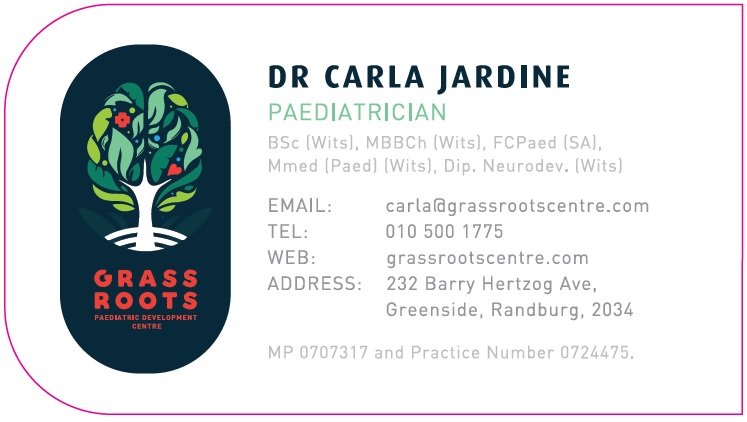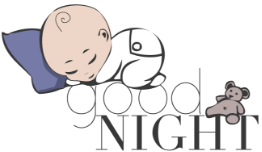By Janine Rudwick – Good Night Consultant & Dr Carla Jardine – Paediatrician
As sleep consultants we come across many instances of parents medicating their children to aid sleep. Parents are often faced with this decision, desperate for the entire family to get some much-needed sleep.
There are special medical cases where medication may be needed and will be prescribed by your doctor, but for the most part healthy sleep routines and habits are NOT something that should be achieved by medicating. Sleep is essentially a learned behaviour that we can teach our babies and children.
What does normal sleep look like?
It is important to understand what normal sleep looks like for babies and children as it gives us a better indication of what to expect and why they wake so often, even after they are no longer feeding at night.
We all sleep in cycles. We move through stages of light sleep (also referred to as Rapid Eye Movement or REM) and deep sleep. For a baby, sleep cycles are around 45 minutes and it gradually gets longer as they get older. They therefore naturally have a lot more REM sleep than we do. An adult has a sleep cycle that lasts up to 1.5 hours in length. During the newborn phase babies wake in the night for nutritional purposes. Between the age of 4 – 5 months, babies can usually manage one longer sleep period at night and the need to feed gradually reduces. Unfortunately, the night waking’s do not always end when the need to feed does.
Even though sleep is a natural process and is a necessity to our wellbeing, linking sleep cycles and sleeping through the night is an essential skill that babies need to be taught. Some babies manage to do so naturally, but more often they need some help to get there.
Children require 11 to 12 hours of sleep a night, with age-appropriate naps during the day. There are endless health and wellness benefits of getting the sleep we need. Growing children are at a disadvantage if they do not sleep well. It has a direct influence on their health, mood, weight, concentration, stamina and learning.
What influences sleep?
We need to look at sleep holistically and not in isolation. Sleep is a complex function as there are so many influencing factors in our daily life.
Nutrition
When Nutrition Can Influence Sleep – Good Night (goodnightbaby.co.za)
Environment
Setting the stage for a good night’s sleep – Good Night (goodnightbaby.co.za)
Routine
Your 7- to 11-month-old baby’s sleep routine – Good Night (goodnightbaby.co.za)
Sleep associations
Understanding the sleep training Process – Good Night (goodnightbaby.co.za)
Stimulation
Illness
My great sleeper is sick – Now what? – Good Night (goodnightbaby.co.za)
Trying to ‘cure’ sleepless nights by looking at sleep in isolation is treating the symptoms and not the cause.
By – Dr Carla Jardine – Paediatrician
All parents (including Paediatricians!) have struggled through sleepless nights with their kids. Trying to get your child to sleep through the night is one of the most exhausting phases of parenting. Many parents are tempted to try medication after endless sleep deprived nights. Unfortunately, this is never a real solution. These medications may provide a brief sense of relief when your child drifts off to sleep more easily at bedtime, but prolonged use can cause side effects and do not address the core problem…only a good routine with healthy sleep habits and sleep associations can encourage children to sleep through the night!
The Common Culprits
Melatonin: This is a natural hormone that is produced by the pineal gland in the brain. It controls our circadian rhythm-the natural sleep-wake cycle in our brain. When it is dark, melatonin increases, and the effect is that you feel progressively more sleepy. When it is light, melatonin decreases with the opposite effect.
Some insomniacs have been found to have naturally low levels of melatonin. There are also instances when the circadian rhythm (and melatonin secretion) become disturbed, such as in shift workers, long haul flights (jet lag) and in people living in countries with extremes of either daylight hours or night hours. In these instances, a melatonin supplement is appropriate.
Melatonin is a synthetic hormone and has side effects such as: headache, feelings of depression, daytime sleepiness, dizziness, stomach cramps and irritability. Melatonin has not been approved for use in children but there are certain instances where it can been used “off-label”. This is mainly in children who have ADHD or Autism. In these conditions there is often a disturbance in the sleep-wake cycle and melatonin has been of benefit.
Anti-Histamines: These are medications that decrease the levels of histamine in the body. They are usually used to treat allergic conditions. The first generation of anti-histamines were found to be very sedating as a side effect. This resulted in these drugs being marketed as over the counter sleep aides. This is not however the appropriate use of these drugs, and they also have many side effects: dry mouth, drowsiness, dizziness, nausea and vomiting, restlessness, headaches, moodiness, blurred vision and confusion.
Codeine: This is usually the ingredient in pain medication that causes sedation. Codeine is a weak opioid. It can be a useful pain medication and is also sometimes used in cough mixtures as it also causes cough suppression. Some of the side effects of codeine are: lightheadedness, dizziness, nausea and vomiting, shortness of breath, sedation, allergic reactions, constipation, abdominal pain or rashes.
All of these common “sleep aides” have many side effects and their long term use is ill advised. Some are not tested in children at all and others should not be given to children under 2 years of age. The safest thing to do is to use medications only as prescribed by a doctor and not to improvise their use according to their sedative properties. If in doubt, always get your doctors advice!
How do you teach your child to sleep?
Just as we help our children master the skills of walking, talking, using manners, sharing, brushing teeth, we can teach them how to sleep well by putting down good foundations for sleep and giving them the opportunity to learn how to sleep without needing our help.
If you think about your routine before going to bed whether it is reading a book or having a bath – this routine cues your brain that sleep is coming. The same is true for our children; they are rocked to sleep or fall asleep while feeding or lying in your arms and this is what they associate with falling asleep. The challenge lies in changing their routine and helping them develop a sleep routine which they can do without needing extensive help from their caregivers.
Each child and family are different. There are so many self-help books and articles on what to do and many parents achieve success, but because we are all so different – it is hardly ever a ‘textbook ‘case and without support parents go into doubt and revert to old routines.
As sleep consultants we consider the child’s age, health, weight, personality, current routine, family dynamic and any other possible influencing factors.
We take the responsibility of helping to solve sleep problems very seriously. We use all the information at hand to make an informed prognosis. Based on this, our knowledge, and our experience as a team of consultants we customize a sleep plan tailored to the specific needs of the baby and family.
Most importantly we then provide the family with the support that is so necessary. We are behind you every step of the way – to educate, encourage, listen, understand, and celebrate every little step toward better sleep.
If you are facing sleepless nights and don’t know which way the light is at the end the sleepless tunnel, get in touch with one of our consultants for a free 15-minute assessment to see if we can work together to help you in a way that you are comfortable with and will help your child sleep better now and in the future.

#sleeptraining

